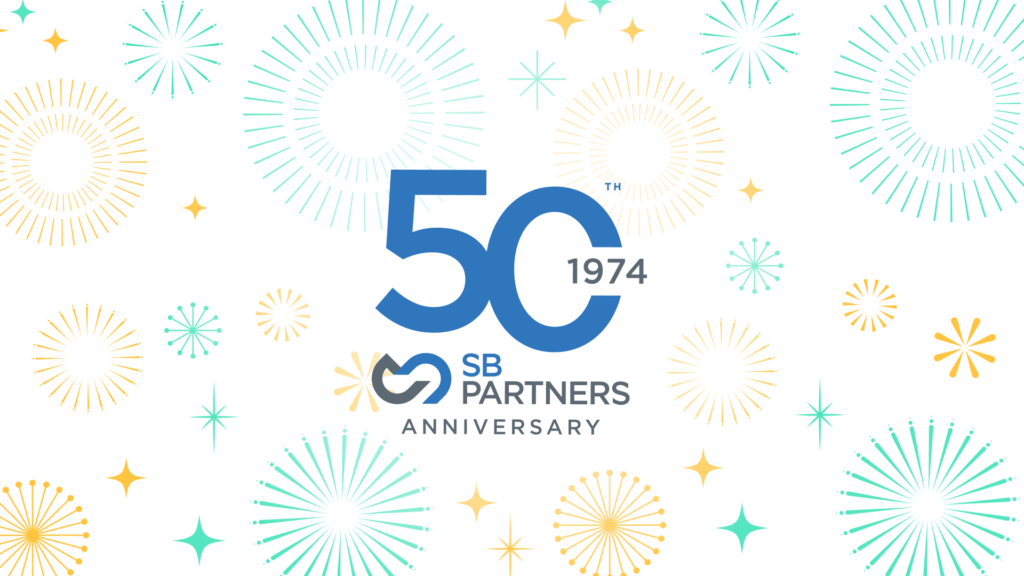Below is a summary of year-end tax tips to consider in 2020.
1. Up to $27,830 RRSP Contribution
You have until Monday, March 1, 2021, to make a contribution to your RRSP and be able to take a deduction on your 2020 tax return.
Be sure to check your 2019 Notice of Assessment from the CRA to confirm your RRSP contribution room for 2020. An over-contribution in excess of a $2,000 cushion will attract a penalty tax of 1% per month.
2. RRSP Conversion to RRIF
If you turned 71 in 2020, the last day to make your final RRSP contribution is December 31, 2020. However, you may consider making a one-time contribution to your RRSP in December 2020 as long as you have earned income that will create RRSP contribution room for 2021. You will be required to pay a 1% penalty for the overcontribution during December 2020. Because of the 2020 earned income, additional RRSP room will be available starting January 1, 2021 that will offset the overcontribution.
The tax savings of this strategy outweigh the penalty.
3. RRSP Spousal Contribution
You can contribute funds to a spousal RRSP as long as you have available RRSP contribution room. Your spouse’s RRSP contribution room is not affected by a spousal RRSP contribution. Having only one spouse owning a large portfolio in an RRSP will result in a higher tax cost compared to having each spouse owning the same/similar RRSP value.
After you turn 71 years of age and have RRSP contribution room, you can still contribute to a spousal RRSP for a spouse who hasn’t reached 71. As the contributor, you will be able to deduct the spousal RRSP contribution from your income.
4. Prescribed Rate Loan
This strategy allows to shift investment income and capital gains that would otherwise be taxed in your hands at a high marginal tax rate to the hands of your low-income family members. An interest-bearing loan is made at prescribed rates (currently set at 1% annual) to your spouse, common-law partner, minor child or family trust who will then use the funds to earn investment income or capital gains.
The interest expense accrued for calendar year 2020 must be repaid no later than January 30, 2021 in order to maintain the validity of the loan.
5. TFSA Maximum Contribution of $69,500
Canadian residents, age 18 and older, can contribute up to their unused TFSA contribution room. If you were 18 years of age or older in 2009 and have never contributed to your TFSA, you may be able to contribute up to $69,500 in 2020.
For 2020, the maximum annual TFSA contribution will be $6,000.
6. Charitable Donations
Donating publicly traded shares which have appreciated in value, instead of cash, can be a tax-efficient way for you of making a gift to a qualifying charity organization.
Donating publicly listed shares will result in a donation receipt equal to the fair value of the gifted shares while no taxes payable on the gain.
7. Tax Loss Selling
Year-end is the perfect time to review your investment portfolio and consider triggering losses to offset gains incurred 2017 through 2020. This strategy will allow you to reduce capital gains for 2020 and possibly recover taxes paid on capital gains reported in 2017 through 2019.
Don’t forget the superficial loss rules which deny a capital loss where you acquire the same property 30 days before or after selling it. The rules also apply if someone affiliated to you (e.g. your spouse or a corporation you control) buys or sells the property in the same time period.
You cannot claim a capital loss on the disposition of property to your RRSP or your TFSA.
You also cannot claim a capital loss on the transfer of property to your spouse, but you can effectively transfer the loss to your spouse so that he or she can claim it on an ultimate sale.
If you plan on selling shares to trigger losses in 2020, consider deferring the sale of shares with accrued gains until January 2021. This will maximize the losses available in 2020. If you have losses carried forward from prior years, consider triggering gains before year-end to be sheltered with these losses.
The last day for trading through a Canadian exchange so that it can be settled in 2020 is Wednesday, December 29th.
8. Estate Planning
The drafting and final execution of your Will is not a one-time event, but an ongoing process. Life events, such as first marriage, separation, divorce, re-marriage, child birth, child adoption, blended families, death of a family member and sequence of death will have implications on how your estate is to be distributed amongst the beneficiaries. Your Will and net worth should be reviewed on an ongoing basis to ensure after-tax liquidity is available to meet your estate planning objectives.
In the event of a sudden unexpected death, you want to ensure liquidity is readily available in your estate and loved ones are properly taken care of.
9. Tax on Split Income
Every single individual resident in Canada who receives or realizes an amount derived from a private corporation, partnership or trust will need to understand the Tax on Split Income (“TOSI”) rules.
Income splitting with non-active family members is severely restricted or not available under the new TOSI rules.
TOSI rules do not apply to salaries paid out of a private corporation.
Income which is caught under the TOSI rules will be taxed at the highest marginal tax rate (currently, 53.53% for residents of Ontario for 2020).
The complexity of the rules will result in the need for specific tax advice wherever TOSI applies. A detailed analysis will require a thorough examination of the circumstances of the recipient, the source of income, the nature of the business, and the rules themselves. Specific clauses can be inserted in a Will to ensure shares on which the TOSI rules do not apply can be transferred to family members to achieve future income sprinkling.
10. Tax on Passive Income
In 2019, the owners of a Canadian controlled Private Corporation (“CCPC) became familiar with the new Tax on Passive Income rules (“TOPI”). Under the TOPI rules, every $1 of passive income earned in excess of $50,000 reduces the small business deduction of a CCPC or associated group by $5. No small business deduction will be available if passive income of the CCPC or associated group exceeds $150,000. Passive income earned in the previous taxation year will determine the small business deduction availability for the subsequent taxation year.
Switching the investment portfolio to a capital gain generating investment vehicle or the use of corporate owned life insurance products may help mitigate the exposure to TOPI.
11. Tax-Effective Corporate Withdrawals
As an owner of a corporation you should consider the following tax-effective withdrawals from your corporation:
– Payment of non-taxable capital dividends;
– Repayment of shareholder loans;
– Undergo a reorganization to extract cash at capital gains tax rates instead of salaries, bonuses or taxable dividends tax rates.
Significant tax savings can be achieved by converting from a salary and/or taxable dividend type of compensation to a capital gain remuneration strategy. Capital gains are taxed at 26.76%, eligible taxable dividends are taxed at 39.34%, non-eligible taxable dividends are taxed at 47.74% and bonuses/salaries are taxed at 53.53% to Ontario residents subject to the highest tax brackets.
12. Compensation
If you are the owner-manager of a Canadian Controlled Private Corporation (“CCPC”), you should consider a mix of salary, bonus, and dividends for your compensation package. Generally speaking, a bonus is preferred over salary for the Corporation, since the payment and the remittance of the related withholdings taxes can be deferred up to 180 days after the corporation’s year-end.
Salaries and bonuses are both classified as earned income for the purpose of computing your RRSP contribution limit for the subsequent year. However, dividends are not taken into consideration for the purpose of the RRSP contribution limit.
If you employ a spouse and/or children, consider paying them a reasonable salary or bonus. This may result in a tax savings if your spouse and/or children are at a lower marginal tax rate than you are. TOSI does not apply to salaries paid to family members.
The payment of salaries and bonuses at year-end may also help to reduce your corporation’s federal active business income below $500,000 and take advantage of the lower corporate tax rates.
Debts you (don’t pay the premiums) or your family members owe to your corporation must be repaid within one year following the end of the corporation’s taxation year during which the loan was made to you. Even if the loan is non-interest bearing the borrower must report an interest benefit on their tax return. However, there are some exceptions to this rule. If you borrowed money from your corporation, you should contact SB Partners to review the tax consequences and possible alternatives available to you.
13. COVID
The government introduced multiple measures to support individuals and businesses to cope with the impact of COVID. Ensure that you have applied for the different programs as they are applicable to you to help you through the pandemic.
- Canada Recovery Benefit (CRB)
- You may qualify to receive $500 per week if you work was impacted by COVID and you don’t qualify for EI.
- This benefit will end on September 25, 2021.
- Canada Recovery Sickness Benefit (CRSB)
- This paid sick leave is available for self-employed workers who couldn’t work because of COVID related sickness.
- You may qualify to receive $500 per week for up to two weeks.
- This benefit will end on September 25, 2021.
- Canada Recovery Caregiving Benefit (CRCB)
- You may qualify for this benefit if you miss work to take care of family members due to COVID.
- You may qualify to receive $500 per week.
- This benefit will end on September 25, 2021.
- Canada Emergency Wage Subsidy (CEWS)
- You may qualify to receive a subsidy of up to 65% of remuneration that you paid between March 15, 2020 to June 2021.
- The application deadline for this subsidy is January 31, 2021 or, 180 days after the end of the claim period, whichever comes later.
- Canadian Emergency Business Account (CEBA)
- You may qualify to receive an interest-free loan of $40,000 of which $10,000 would be forgiven if repaid by December 31, 2022.
- The government is looking into expanding the loan by another $20,000 of which $10,000 would be forgiven if repaid by December 31, 2022. More information on this will be released soon by the government.
- The application deadline for this loan is March 31, 2021.
Please note that CRB, CRSB, CRCB are taxable benefits and you will have to pay taxes on the amounts received. Additionally, the forgiven loan amounts will also be considered a benefit and you will have to pay taxes on it.
14. Working from Home
Numerous people were expected to work from home during this pandemic. If that is the case in your situation, you may qualify to claim certain home-office expenses which were not reimbursed by your employer. The CRA will allow home office expenses of up to $400 depending on the amount of time worked from home. You will not be required to obtain a T2200 form from your employer.
| December 15, 2020 | Final quarterly installment of tax due for 2020 |
| December 29, 2020 | Final trading day on which to settle a trade in Canada for 2020 |
| December 31, 2020 | Final payment date for a 2020 tax deduction or credit in respect of: – Interest on investment loans – Fees to advisors – Custodial fees – Pay alimony and maintenance – Pay child support (if deductible) – Make charitable donations and political contributions – Pay childcare – Pay tuition fees and interest on student loans – Pay medical expenses – Contributions to your own RRSP if you turn 71 in 2020 |
| January 1, 2021 | Earliest date for 2021 TFSA contribution of up to $6,000 |
| January 30, 2021 | Pay interest on investment loans within the family |
| March 1, 2021 | Final day for 2020 RRSP contribution For taxpayers who died in 2020, final day for contributions to a surviving spouse’s RRSP and obtain a deduction in deceased’s terminal tax return Home Buyer’s Plan repayment due |
| March 15, 2021 March 31, 2021 | Pay first 2021 tax instalment Application deadline for CEBA loan |



